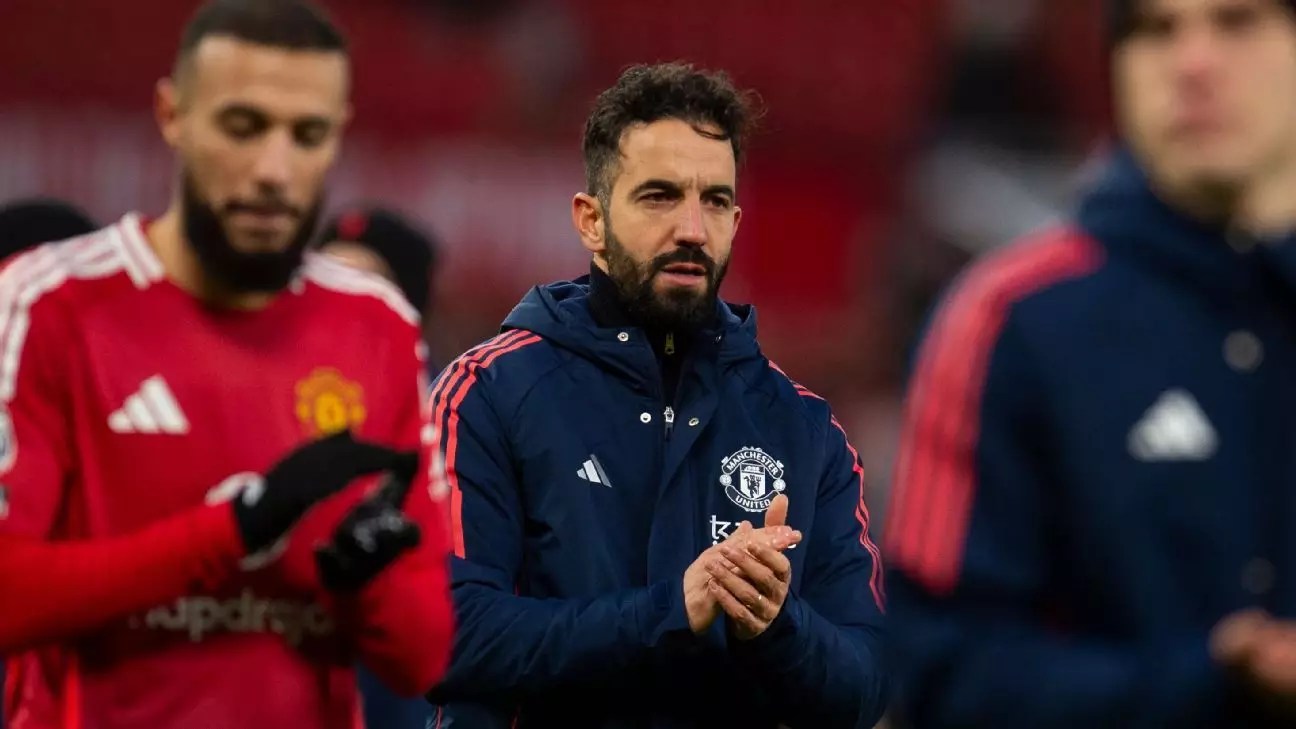The current situation at Manchester United paints a distressing picture for head coach Ruben Amorim. After a respectable tenure at Sporting CP, where he enjoyed significant success, Amorim now finds himself grappling with mounting pressures in the Premier League. Just a short time into his reign, United has already faced two devastating home defeats within a mere three-week span, leaving fans and stakeholders deeply concerned. This stark reversal from a club that was once impervious at home raises questions about both Amorim’s strategy and the squad’s resilience.
To understand the implications of these recent setbacks, one must examine the context of the losses. The defeat against Nottingham Forest followed by an even more calamitous 3-0 drubbing by AFC Bournemouth highlighted critical shortcomings in the United setup. Notably, the earlier game against Forest, though a loss, at least saw the team pushing for an equalizer late in the match. In stark contrast, the dismal outing against Bournemouth encapsulated everything wrong with the current squad—lack of urgency, poor execution, and a disorganized defense.
The frustration culminated in boos from the home crowd, echoing the deep dissatisfaction spilling over in the stands. Fans who had traveled hundreds of miles to support their team were forced to endure a spectacle that was far from inspiring. The Bournemouth players, to their credit, appeared confident and in control, and the chants of “Olé” from their supporters only emphasized the grim reality for United.
One of the glaring issues plaguing Amorim’s side has been the vulnerability during set pieces. This has reached epidemic proportions, as United has now conceded seven goals directly from set pieces over their last six matches—an alarming statistic. Such an inability to defend basic set-play scenarios suggests a fundamental breakdown in coaching strategies and player execution.
Moreover, the team’s defensive organization has come into question; as they have frequently conceded the opening goal, putting themselves at a disadvantage. This recent pattern of going behind early puts undue pressure on the squad to recover, often resulting in lapses of concentration and further goals conceded. Both against Arsenal and Bournemouth, this tendency allowed opponents to capitalize quickly, leading to a scenario where favorable momentum was lost.
Ruben Amorim has borne the brunt of the criticism following these defeats. He openly expressed that he felt the anxiety within the stadium, signaling that both players and fans are currently experiencing a collective sense of despair. A coach’s ability to galvanize a squad during tough times is tested under such circumstances, and it remains to be seen if Amorim can navigate this challenge effectively.
Reporters often fill press conferences with questions about tactics and motivation, yet the underlying issue may lie in the mindset of the players. Confidence is fragile; a couple of defeats can lead to a downward spiral where errors become commonplace. Amorim must find a way to restore belief in his team while addressing glaring weaknesses—particularly in defending set pieces and maintaining composure in high-pressure situations.
As Manchester United heads into the festive season facing teams like Wolverhampton Wanderers and Newcastle United, the stakes couldn’t be higher. For the first time since 1989, United risks a spot in the lower half of the table on Christmas Day. The potential fallout from continued poor performances is immense, threatening not only the position of Amorim but also the long-term vision for the club.
It is clear that this period marks a critical juncture for Manchester United. The storm Amorim predicted has arrived. The coming weeks will serve as a litmus test for both the players and the coaching staff, as they look to stave off a crisis that could jeopardize the club’s prospects for the remainder of the season.
It is imperative that Manchester United acts swiftly to address these issues. Whether through tactical adjustments, player rotations, or addressing psychological barriers, decisive actions must be taken. Time will tell whether Amorim is capable of orchestrating a turnaround or if he will be another name lost in the annals of managerial history at a club struggling to rediscover its identity.


Leave a Reply